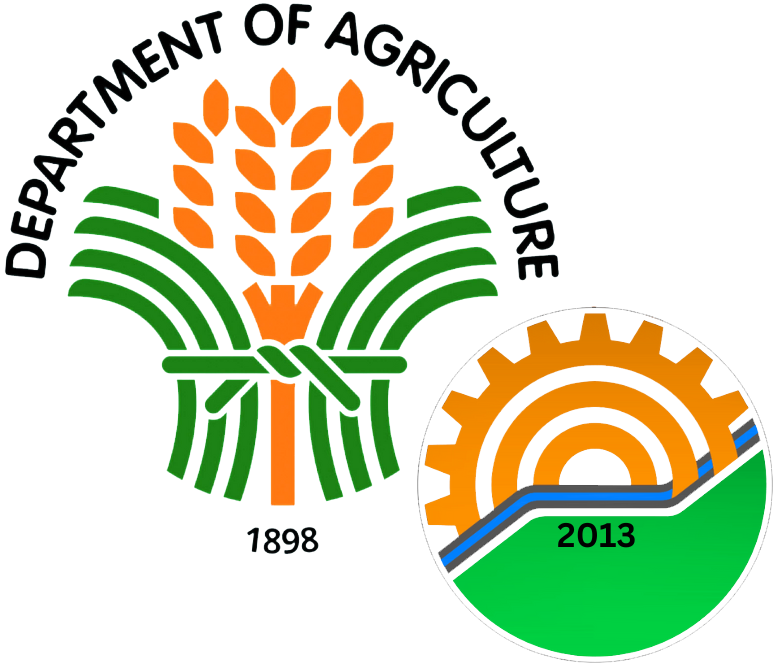
The Department of Agriculture – Bureau of Agricultural and Fisheries Engineering (DA-BAFE) is initiating and spearheading the establishment of pilot agricultural and fishery machinery and equipment service centers or AFMESCs that target to provide farmers’ organizations and cooperatives wider access on the use of agri-fishery machinery and equipment granted by DA and other agencies.
DA-BAFE Director Ariodear Rico expounded on Administrative Order No. 15 series of 2020 signed by Agriculture Secretary William Dar mandating the promotion and support to the establishment, operation, maintenance, and management of agri-fishery machinery and equipment service centers.
The AFMESCs will be strategically located in agricultural and fishery production areas and shall be owned and operated by farmers’ cooperatives, SEC or DTI registered businesses, agricultural and fishery machinery equipment suppliers, local government units, agri-fishery based colleges and universities, and concerned national government agencies and corporations that undertake research, development and extension functions and income generating projects.
Furthermore, Engr. Rico stated that BAFE in collaboration with DA-Regional Agricultural Engineering Divisions (RAEDs), concerned DA agencies, and agricultural and biosystems engineering groups in the LGUs shall carry out the AFMESC master planning. “The master plan shall ensure that the agri-fishery machinery in the AFMESC shall not compete, duplicate, or dislodge the existing machinery in the area, rather will augment whatever are lacking,” he added.
“All banner program coordinators, concerned DA bureaus and attached agencies, and regional field offices must consider the AFMESC as a priority intervention. They need to be properly informed and educated to include AFMESC,” emphasized Engr. Rico.
AFMESCs involve strengthening the rice processing centers (RPCs), corn program village type dryers (VTDs), solar powered irrigation systems (SPIS) among others as viable, self-sustaining, and income-generating clustered farms.
BAFE also plans to present AFMESC to state universities and colleges (SUCs) to clarify the mode of operation as part of the extension services and income-generating function.
Engr. Denver Camiana of BAFE’s Programs and Projects Management Division (PPMD) said that the pilot AFMESC will provide four services namely custom servicing, repair and troubleshooting, training service, and after-sales service.
The center will support various operations in rice farming like land preparation, planting, irrigation and fertilization, weeds and pest control, and harvesting. It will be professionally managed by a licensed agricultural and biosystems engineer (ABE) and staffed with TESDA certified agri-fishery machine operators.
An AFMESC is envisioned as a common service facility with appropriate set of farm machinery that can provide custom farm mechanization services such as plowing, land leveling, harrowing, transplanting, harvesting, drying, and milling.
Further the AFMESCs will have its support services on repair and troubleshooting services, preventive maintenance, and after-sales service by tie-ups with suppliers. A training center within an AFMESC will provide lectures and hands-on training such as Rice Machinery Operation NC II, Agricultural Machinery Operation NC II (non-rice), Agricultural Machinery Servicing (tractor) NC III, added Engr. Camiana.
Upon its establishment, an AFMESC would complement and support the rice and corn programs of DA as well as the Rice Competitiveness Enhancement Program (RCEP).
Engr. Camiana explained that the first major activity of the AFMESC program include pre-implementation which involves the validation and selection of sites. BAFE’s Engineering Plans, Designs, and Specifications Division (EPDSD) will gather technical data for the design of facilities and will assist the DA-Regional Field Offices (RFOs) in the preparation of feasibility studies (FS).
The succeeding activities are the provision of machinery, social preparation to farmers and LGUs and information campaign. Engr. Camiana believes that an information campaign would increase the awareness especially of the RAEDs, which based on his observation are proposing a project that has a similar approach as an AFMESC. A strong information campaign would influence the regional offices to mirror the initiatives in the national level, he added.
The current training of operators and technicians is insufficient due to lack of facilities and unavailability of expert trainers, which are challenges to realizing the agenda of educating operators and technicians on repairing of machinery, said Engr. Camiana. In due time, AFMESCs could offer them advanced training to gain proficiency in repairing agri-fishery machinery.
The Standards Regulation and Enforcement Division (SRED) of BAFE can facilitate the accreditation of an AFMESC into a training and assessment center for Rice Machinery Operation NC II, Agricultural Machinery Operation NC II (non-rice), Agricultural Machinery Servicing (tractor) NC III, among others.The crafting of a master plan would provide a holistic view on the program’s direction. Lastly, monitoring and evaluation of AFMESCs would increase the likelihood of the program’s sustainability.
Engr. Cristy Cecilia Polido, chief of PPMD, said that as of the moment there is no existing facility that performs the four services that will be offered by an AFMESC. The PPMD targets the preparation of AFMESC master plan this year. The data that will be gathered from the pilot sites would serve as a guide for PPMD and DA-RFOs in crafting the master plan.
Further, all four services of the AFMESC must be validated to ensure that each one is appropriate. Machinery requirements and testing equipment in a typical AFMESC must likewise be identified, suggested Engr. Polido.
An AFMESC is originally conceptualized to be used in rice production. However the concept of AFMESC may be expanded to other agricultural commodities in the future to include corn and high value crops (in clustered farms under Bayanihan Agri-Clusters), sugarcane (in block farms with common service facility under Sugar Regulatory Administration), tobacco (in block farms managed by National Tobacco Administration), fiber (in common service facilities of Philippine Fiber Industry Development Authority), coconut (intercropping farms with common service facility managed by Philippine Coconut Authority), livestock, and fisheries and aquaculture, stated Engr. Camiana.
A proposed model for a rice and corn AFMESC is that of an agricultural enterprise managed by farmers’ associations.
Sugarcane has a generally moderate to higher level of mechanization than other crops. Machinery requirements are provided by large sugarcane producers and millers despite distant locations of farms just to feed their sugar mills. An AFMESC can help small-holder sugarcane farmers to reduce their expenses in renting machinery from large sugarcane producers.
For the livestock and dairy sector, an AFMESC can integrate renewable energy systems to reduce energy consumption from the power grid, and eventually minimize production cost.
A fisheries and aquaculture AFMESC managed by farmers and cooperatives producing freshwater fish and prawn can also utilize renewable energy systems. It can also serve as training and certification center for fish and prawn farmers on the operation and maintenance of machinery to enhance their production.
To jumpstart the AFMESC program, Engr. Camiana proposed entering on an agreement (MOA) with concerned DA agencies like SRA and NTA where BAFE can provide technical assistance in the engineering design of the facility. Finalizing the program proposal and implementing guidelines is in progress. Fund sources to be tapped for the provision of agri-fishery machinery and facility are the General Appropriations Act (GAA) banner program, RCEF agricultural mechanization component, Tobacco Excise Tax, coco levy fund, LGUs 20% economic development fund, assistance to LGU (DILG/ELCAC), ACEF loan component, organic agriculture fund, and agro-industrial modernization and credit financing program.###Marshall Louie Asis, DA-BAFE (Published on April 11, 2021)
















